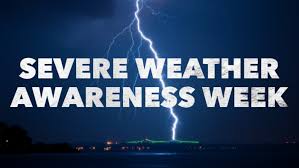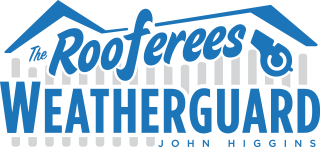
March 27 – 31 is Nebraska Severe Weather Awareness Week – a perfect time to share some reminders about storm season.
In the Midwest, severe thunderstorms pose the biggest weather threat. In order for a thunderstorm to be considered severe, it must produce quarter-sized or larger hail with wind gusts of around 60 mph. About 10% of all annual T-storms in the U.S. are severe, and it is not uncommon for us to experience at least one each season.
Severe storms with hail and strong winds often leave damage in their wake. Broken and missing roof shingles, and dents or holes in siding and gutters can be expected on homes and buildings in the path of a severe storm. After a storm hits, homeowners are usually anxious to file insurance claims, gather estimates and begin the restoration process.
But, the Roofereeas caution you to be aware of stormchasers if you have storm damage. When storms hit an area, the storm chasers are never far behind.
Stormchasers do just what the name implies – they chase storms, showing up usually from out-of-town to an area that has been recently hit with a severe storm. They perform bare minimum work, often using cheaper materials and ignoring other potential problems, and finishing as many jobs as they can before moving on to the next area. This can lead to problems down the road because the roof typically won’t last as long as it should, which won’t likely be discovered until the stormchaser has left town.
Here are a few words of advice from the Rooferees as you choose a contractor for your roof or siding project:
- Do your research. Ask for license and insurance, and make sure the company is an established, local company with an office in town.
- Be leery of a door-to-door salesman. They canvas a neighborhood recently hit by a storm. The scammer will offer a free inspection and they may fabricate damage or produce a picture of damage that isn’t on your property.
- Don’t be pressured by a high-pressure salesman. If it sounds too good to be true, it probably is. Some contractors will bid the job much lower than everyone else, only to add more costs after the job has started. Material costs should never rise after the job has started.
- Don’t sign any paperwork with a contractor before your insurance adjustor has inspected the damage first.
- Always ask for an estimate that includes the total cost of labor and materials. If a contractor doesn’t want to give you an estimate before the insurance adjustor assesses the damage, they are likely trying to scam you.
A reputable, local company should not expect any payment before materials have been delivered and work has begun on your project. Choose a local company with a solid reputation, and avoid stormchasers!

